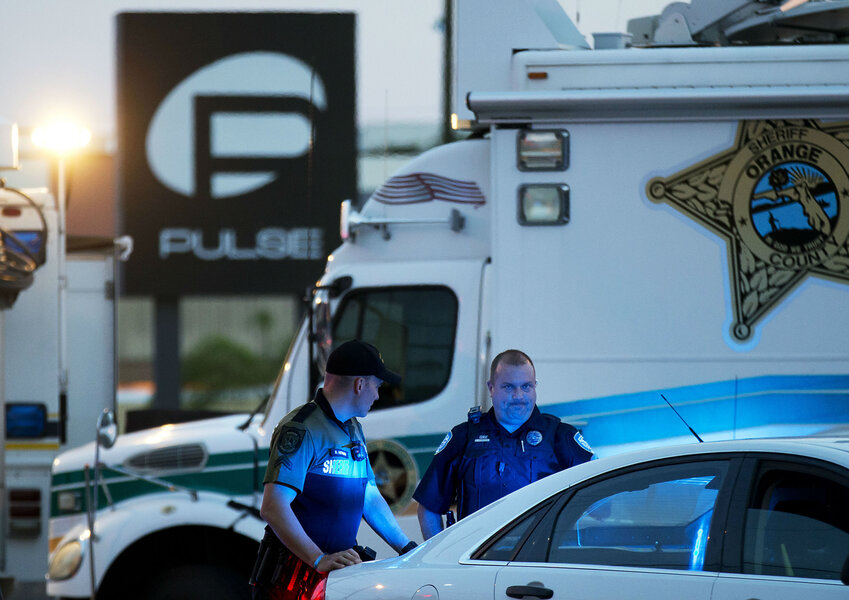Need police help? Why some cities are reluctant to offer 911 texts
Loading...
| New York
With gunshots ringing out just feet away, Eddie Justice hid in a bathroom in the Pulse nightclub in Orlando, Fla., and frantically texted his mother for help.
"Call police," he wrote. "I'm gonna die."
Moments later, he texted again: "Call them mommy. Now. He's coming."
Justice, who would later be confirmed among the 49 people killed in last month's attack, was among several victims who texted relatives to call 911, fearing they would draw too much attention by making voice calls.
None of them could text 911 directly because Orlando is among the vast majority of US cities that don't have that capability. But as active-shooter and hostage situations become more common, police departments are exploring technology that would allow dispatchers to receive texts, photos and videos in real time.
Out of more than 6,000 dispatch centers nationwide, a little more than 650 can accept text messages, with more than 150 making the text-to-911 upgrade this year, the Federal Communications Commission said.
Democratic Sen. Charles Schumer, of New York, has been pushing for text-to-911 in New York City, which has been studying it for nearly a year. Such a system, he said, can "save lives by informing 911 dispatchers of critical details that can guide first responders."
Emergency officials stress, however, that a voice 911 call is preferred when possible because a dispatcher can elicit details more quickly than texting back and forth. The major concern for many cities, including some of the nation's largest, is that overuse of texting when it's not absolutely necessary could slow response times and cost lives. In Los Angeles, which doesn't have 911 texting, a police dispatch official last year cautioned that response times for text 911 could be triple that for voice calls.
Nearly every municipality with text-to-911 service has sought to address that concern by promoting the slogan: "Call if you can, text if you can't."
Officials also warn that with text messages your approximate location isn't automatically sent to emergency responders, like it is with voice calls. Instead, they encourage people to give 911 call takers an accurate address or location as quickly as possible.
Supporters of such systems say their use would go beyond active-shooter and hostage situations to scenarios in which a battered spouse, for example, could surreptitiously message police without alerting the attacker.
"If someone could snap a photo or a quick video showing the perpetrator that'd be enormously helpful to law enforcement," said Joseph Giacalone, a criminal justice professor at John Jay College of Criminal Justice and a retired police detective.
San Bernardino, California, rolled out its text-to-911 service in December about two weeks after an attack at a social services center where a man and his wife killed 14 people at a holiday gathering. In New Hampshire, where text-to-911 service is available statewide, Democratic Gov. Maggie Hassan said it was a "common-sense initiative that will help save lives."
Text-to-911 service also has been used by deaf and hard-of-hearing people to get in touch with police.
A deaf woman in Alpharetta, Georgia, texted police to report there were two children locked in a car in a shopping mall parking lot, and police rescued them.
Authorities say 911 texting, like its phone counterpart, has also been abused.
Last year, a teenage girl texted 911 to falsely report there was an active shooter at a high school in Marietta, Georgia, said police, who arrested her at her home an hour later.







